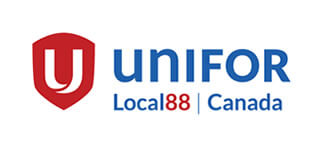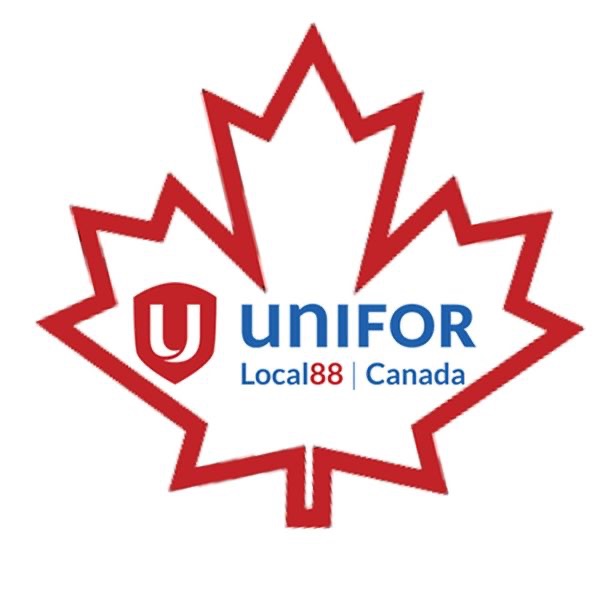November 25 starts the 16 Days of Activism against Gender-Based Violence (GBV) which includes December 6, the National Day of Remembrance and Action on Violence Against Women, then ends on December 10. As a union, we have dedicated our activism to end GBV since the devastation of the Montreal Massacre which took the lives of 14 women at Ecole Polytechnique in Quebec, simply because they were women.
This day holds profound significance for us as all workers can commit to the fight against all forms of gender-based violence, both inside and outside of our workplaces.
For these 16 Days of Activism, Unifor is highlighting the power and resilience of sisters in the union who stand united with our allies in the fight against violence. Across Unifor workplaces, the union has bargained 628 union women who serve as Women’s Advocates to support our members in leaving abusive relationships. In the past year alone, Unifor members gained 113 newly bargained Advocates. It is clear the role is needed more than ever and is a strategic focus of bargaining committees across Unifor locals.
At the intersection of one or more identities, including women, Indigenous and racialized people, those with disabilities, 2SLGBTQIA+ people, youth and newcomers, we know that rates of GBV are disproportionately higher. As reported by the National Inquiry into Missing and Murdered Indigenous Women and Girls, 2019, Indigenous women are 12 times more likely to be murdered or missing than other women in Canada, and according to Statistics Canada, Indigenous women are far more likely to experience physical assault than non-Indigenous women. Unifor is actively advocating for the implementation of the 231 Calls for Justice to end violence against Indigenous women, girls, and Two-Spirited people.
Gender-based violence, including intimate partner violence, devastates countless lives each year. It is beyond time for us to properly call it what it is: an epidemic.
Unifor has been pushing for legislation to do just that, and our union will continue this push in the year to come. Unifor National President Lana Payne is writing to Premiers of all provinces yet to recognise IPV as an epidemic, asking them to take the important step of making this declaration.
Unifor has been a part of recent success in Nova Scotia, where members helped push forward groundbreaking IPV epidemic legislation. The NDP introduced it, the conservative premier first rejected it then passed it that same day after speaking with Atlantic Regional Director Jennifer Murray and Unifor women in the legislature.
In Newfoundland and Labrador, Murray joined Atlantic Regional Council Women’s Committee and executive members to meet with government Ministers to stress the importance of declaring intimate partner violence (IPV) an epidemic in Newfoundland and Labrador. Unifor sent a message to Premier Furey that we expect action.
Although Ontario led the way with the introduction of Private Member’s Bill 173, An Act to Declare Intimate Partner Violence an Epidemic, the Bill is stalled out after Second Reading. In April 2024, Ontario Regional Council Director, Samia Hashi joined Unifor Women’s Director, Tracey Ramsey, ORC Women’s Committee members and staff at Queen’s Park for the second reading. More than 200 survivors, families of victims, service providers and advocates filled the galleries to send a clear message that workers want this legislation passed. More than 130 Unifor women met in Windsor on November 25 to plan for our next steps for this campaign. Join the call to action by sending Premier Ford a message today- It’s time to pass Bill 173.
In British Columbia, Unifor joined a coalition of advocates, experts and concerned service providers who support survivors of gender-based violence. Unifor Western Regional Director Gavin McGarrigle is supporting the efforts of the British Columbia Regional Council Chairperson, Women’s Committee members and liaison who have signed onto a letter from a broad-based Coalition to Premier Eby calling for a declaration of gender-based violence as an epidemic in the province.
In the Prairies, the PRC Chairperson, Women’s Committee members and liaisons are strategizing around how Unifor can push for the same declaration in Manitoba, Alberta and Saskatchewan. Every region has been deeply impacted and is looking to bring IPV legislation to their province.
Ending gender-based violence requires relentless action. Unifor encourages all members to keep showing up, to speak out in their communities, to educate others, and to stand firmly beside every survivor. Unions demonstrate the power of collective action, and together, workers will continue to push for changes required to bring this epidemic to an end.
In preparation for the International Day for the Elimination of Violence Against Women on December 6, members can download and print posters to display on bulletin boards, in lunchrooms, union offices and more.
Download digital copies of the poster and social media graphics.
If you are interested in bargaining a Women’s Advocate, please reach out to women@unifor.org for support.
Why are we calling for IPV to be declared an epidemic and why does it matter? These declarations are essential to allocate resources, establish protections and prioritize safety. This work is just beginning and Unifor is a deeply committed partner that has always stood against violence of all forms.
Funding remains devastatingly low and inadequate to support those seeking to flee violent situations. Unifor is providing $175,000 in funding to 74 shelters across the country in December to help fill in the gaps. This funding adds to the work of our outstanding Local Union and Regional Women’s Committees who continue to fundraise to support frontline service providers. Shelters remain in dire need of core funding, and the union will continue to advocate for a fulsome government commitment as we lend support where desperately needed.
Unifor will continue to fight, to advocate, and to hold politicians accountable. Because every woman deserves to live and work in safety, and together, our union is determined to make it happen.

